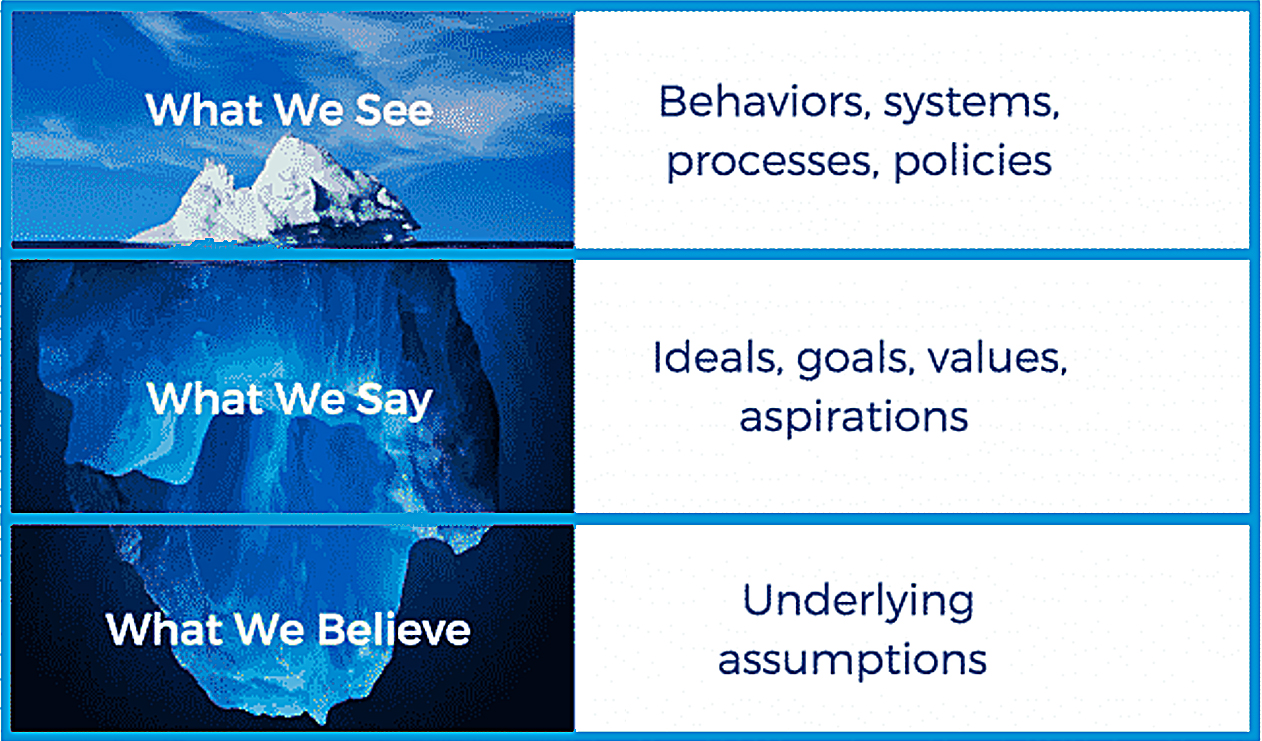Company culture is a complex phenomenon typically comprising of 3 components, represented by an iceberg:

- Behaviours, systems, policies and processes surrounding the way things are done in an organisation
- Values and goals are typically set by the leadership team
- Underlying assumptions that guide behaviour
Leaders play a critical role in driving organizational change, their behaviour determines what’s acceptable within a company. In the early stages of growth, one is focused on building a core team and often applies one’s personal set of values to the hiring strategies. However, as the company grows, leaders have a responsibility to help define, teach, live and reward the culture they want to build.
Leaders personify the change they want to see:
Leaders bear the responsibility for demonstrating the company values and belief systems. Through their behaviour, leaders can reinforce values and build the culture of the company. Every leader should live by the motto of “being the change one wants to see”. Once you reach the top, you need to put twice the efforts needed to stay relevant. Your communication style, way of handling failure and success alike, etc will determine the company culture in the long term.
Leaders are perpetual learners:
All employees, despite their seniority levels, have something to teach each other. When a leader is open to learning, he boosts employee retention and engagement significantly. This will in turn provide opportunities for learning and innovation to develop new skills. A high performing culture stems from the thirst to learn and explore, fostering an environment of collaboration and creativity.
Leaders focus on the social good of employees and clients:
Some of the best business strategies consider the needs of each client from different viewpoints and ensures that the employees pay heed to the client’s buying and experience journey. This approach will transform a regular leader to an inspirational one, wherein a leader focuses on creating a larger impact on the company and the community they serve. Leaders understand the innate desires of the people driving the demand and supply of various products. In today’s age, leaders understand the importance of technology in connecting people. This pace has accelerated over the last 9 months.
Leaders focus on employee growth
Work from a home culture has blurred the lines between one’s professional and personal lives. In such circumstances, employees’ well-being directly impacts the performance of the teams. In a conducive work culture, work attendance increases, customer ratings go up, problems get solved more effectively and employees adapt to change more effectively. When employees feel engaged in dynamic work culture, their performance, pride and loyalty skyrocket the company and its clients to success.
The way to get every employee willingly apply their ‘discretionary effort’ is when the Leadership sets in a culture that is most respectful and conducive to work.
I end this article with India’s recent historical Boxing Day Test match victory at Melbourne, Australia under the unassuming captaincy of Ajinkya Rahane. That was an exemplary display of Leadership, one that was very relaxing and encouraging for every cricketer of the team right from the dressing room to the cricket ground. Every individual performed, ably led by the Captain. We all witnessed the ‘discretionary efforts’ put in by the team and that ensured a befitting reply to the Australian team resulting in a famous Indian comeback, the cricketing world will savour for a long-time hereafter.


